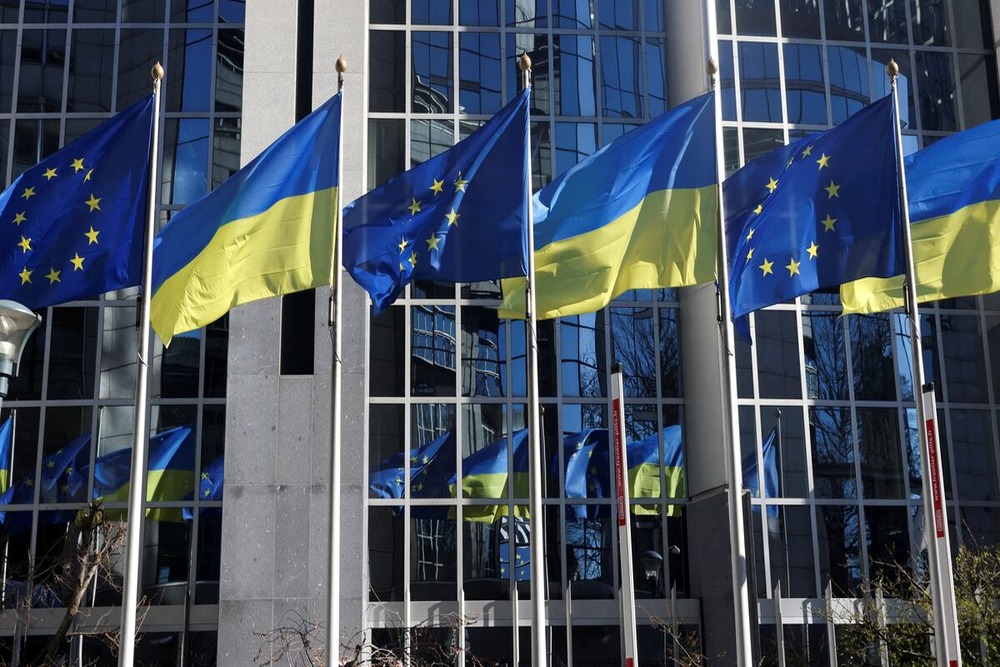Ukrainian President Volodymyr Zelensky has unveiled a robust sanctions package targeting Russia’s crypto networks, aiming to cripple its military funding. The initiative, led by the National Bank of Ukraine, focuses on 60 companies and 73 individuals, primarily Russian, who are involved in evading sanctions.
Ukraine’s Crypto Sanctions Hit 60 Russian Firms
The sanctions harmonize with global partners to block billions funneled through crypto for Russia’s war machine. Zelensky emphasized the urgency of closing these financial loopholes as Russia increasingly relies on digital currencies. The sanctions represent a significant step in Ukraine’s ongoing effort to erode Russia’s economic resilience.
The sanctions target 55 Russian companies, as well as firms in Cyprus, Kazakhstan, and the UAE, that are involved in cryptocurrency mining, exchanges, and payments. One company alone facilitated billions in transactions this year to support Russia’s military-industrial complex.
By freezing these channels, Ukraine aims to disrupt Russia’s ability to sustain its war efforts. Zelensky highlighted the complexity of global sanctions alignment but stressed a unified goal to end Russia’s aggression. The package also complements Ukraine’s efforts to mirror EU sanctions, ensuring a cohesive international response.
Crypto Adoption Increases
Ukraine and Russia are strengthening their crypto-related strategies amid the ongoing conflict. Ukraine’s parliament introduced the Crypto Reserve Bill on May 15, 2025, proposing the integration of Bitcoin into the National Bank of Ukraine’s reserves to counter economic instability caused by the war.
This move aims to reduce reliance on volatile fiat currencies and bolster financial resilience. Meanwhile, Russia has today announced the launch of a national crypto mining registry to regulate illegal operations and enforce taxation, following a 2024 law that legalized mining.
However, crypto mining remains banned in 10 Russian regions and occupied Ukrainian territories. Russia also introduced a 15% tax on mining profits and removed VAT on crypto purchases to encourage transparency. Reports indicate that Russia is using virtual assets, such as the A7A5 token, backed by Promsvyazbank, to evade sanctions, with $9 billion reportedly moved since June 2025.
Additionally, a Russian-British national was charged in the UK for sending $5,510 in crypto to pro-Russian militias in Ukraine, highlighting crypto’s role in sanctions evasion. Ukraine’s push for crypto sanctions and Russia’s regulatory crackdown reflect the growing significance of digital assets in their geopolitical strategies.
Find Cryptocurrencies to Watch and Read Crypto News on the Go Follow CryptosToWatch on X (Twitter) Now

